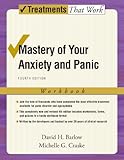How
To Finally Stick To Your New Year’s Resolutions
Just as the end of one year occurs and another one begins,
many people begin thinking about what they want to accomplish in the New Year.
Oftentimes, these goals are things that they
didn’t really accomplish the prior year or are ones that are meant to correct issues
that didn’t go as planned earlier.
For instance, perhaps you gained several pounds last year
and ate more unhealthy food than you had planned; as a result, you want to eat
in a more healthy manner and exercise more in the coming New Year. It’s certainly good to make these new goals
for this year, commonly referred to as “New Year’s Resolutions.” Many people do.
The problem is, most people will usually give up these
resolutions a few weeks or a few months into the New Year because they can’t
stay committed to these New Year’s resolutions.
Therefore, how can you stay committed and accomplish your New Year’s
resolutions?
One of the biggest problems many people have is that they
create these grandiose New Year’s resolutions that are virtually impossible to
achieve without a Herculean effort (and probably a little bit of unrealistic
good luck too).
They really want to set a tone for the New Year to make it
vastly different from the prior year, that went wrong. For instance, you may have wanted to stay in
shape, eat home-cooked meals six days a week, and get in 3-4 days of 60 minutes
of exercise per week. But due to other commitments and circumstances, you ate
home-cooked meals only three days a week and got in 1-2 days of 45-60 minutes
of exercise per week. As a result, you
gained 15 pounds, and you weren’t happy about it.
Thus, you want to “go for the gusto” and intend to eat at
home 7 days per week and exercise 5-6 days for at least 60 minutes per week to
make up for your poor prior year.
While your goals are admirable, they’re unrealistic because
you were unable to keep up a less-demanding eating and working-out schedule last
year. To expect yourself to do an even
more grueling routine, when it comes to eating and exercising, is just setting
yourself up for greater disappointment.
After all, your work and life commitments are likely to stay
the same or even become more involved. This is especially true if you have
young children, as they will be a year older.
This means as much time will be taken away for other activities,
possibly even more. Therefore, to expect
to just do a more grueling scheduling of eating and exercising is likely to
fail before you’re very far into the New Year.
Instead, you should stop chastising yourself for not living
up to your own expectations in the prior year. Instead use the information from
that year to make up more realistic goals and expectations for this year.
See what changes you can make in your life and see if you
can meet the former year’s goals more consistently. Maybe you couldn’t eat home-cooked meals six
days per week; could you do it in the New Year?
If not, could you eat four or even five days per week at home?
That would be an improvement over the three you ate before. The same with exercising: You could only get
in 1-2 days per week of 45-60 minutes each day.
Could you do at least 4-5 days per week of 60 total minutes, even if you
have to do two sections of 30 minutes each?
That, too, would be an improvement over your earlier efforts.
That is the key: You need to look back at where you veered
off course with your goal last year, analyze how you can get back on-track or
closer to those goals in the New Year, then take reasonable steps to do so.
Don’t just throw out some lofty goals that you have
virtually no chance of achieving, as you’ll just disappoint yourself. In turn
this can lead to you giving up your resolutions and perhaps even getting into
more bad habits, which will just disappoint you more.
Therefore, don’t be like many people who just make up some
lofty New Year’s resolutions in an effort to making up for those expectations
which you did not reach earlier. Instead, analyze why you changed direction and
see what adjustments you can make in the upcoming year to get yourself closer
to meeting those former goals, then take reasonable action to meet them.
With your work and life responsibilities being just as
time-demanding, if not more so, following the course of action mentioned here
will make it much more likely for you to stick with those resolutions for the
long term and achieving them this year.
Keep your mindset positive and focused on a successful outcome!























